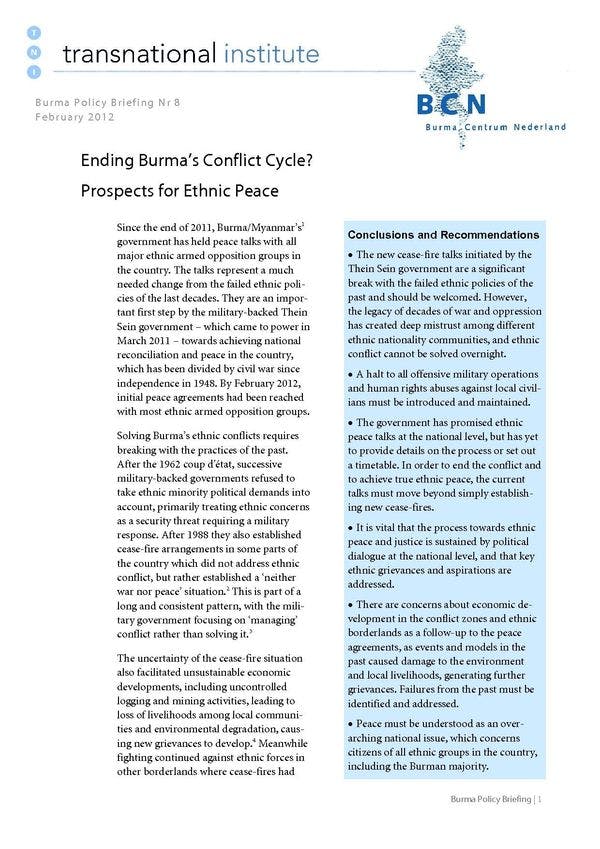TNI-BCN Burma Policy Briefing No. 8. - Ending Burma’s Conflict Cycle? Prospects for Ethnic Peace
Peace is not just seen as a matter that solely involves the government and ethnic armed opposition groups. Instead, for real ethnic peace to be achieved, it is essential that peace is addressed in a much broader way as an urgent matter that concerns all citizens.
Since the end of 2011, Burma/Myanmar’s government has held peace talks with all major ethnic armed opposition groups in the country. The talks represent a much needed change from the failed ethnic policies of the last decades. They are a first important step by the new military-backed Thein Sein government, which came into power in March 2011, towards achieving national reconciliation and peace in the country, which has been divided by civil war since independence in 1948. By February 2012, initial peace agreements had been reached with most ethnic armed opposition groups.
However, in order to end the civil war and achieve true ethnic peace, the current talks must move beyond establishing new cease-fires. It is vital that the process is followed by an inclusive political dialogue at the national level, and that key ethnic grievances and aspirations are addressed. Failure to do so will undermine the current reform process in the country and lead to a continuation of Burma’s cycle of conflict.
Please click here to read the report.
Keep up-to-date with drug policy developments by subscribing to the IDPC Monthly Alert.
